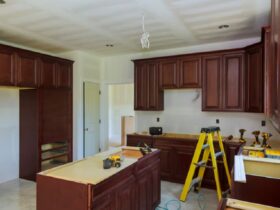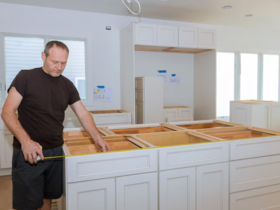Gunite
If you’re contemplating installing a pool in your backyard, you can choose from a variety of designs. Gunite pools are the most popular because they are resilient and can be manufactured in practically any shape. The foundation for gunite pools is a rebar frame topped with a sand-and-concrete combination. Given that gunite is so durable, pools constructed from it are intended to last for a very long period. The capacity to produce endless shapes is only one facet of the versatility of gunite swimming pools.
Owners of Gunite pools can choose from a number of finishes given by inground pools Santa Rosa Beach to complement the surrounding outdoor living environment. Pool decking can be supplemented by plaster treatments, which are available in a variety of colors. Glass or stones can be utilized as extra finishes to give your pool a really distinctive and upscale appearance. Homeowners can improve Gunite pools with a variety of elements, including waterfalls, bespoke steps, and even waterfalls. Due to the versatility of the material, you can tailor a pool to your needs and budget.
Gunite pools are among the top options for homeowners due to its aesthetic appeal, versatility, and resilience. To ensure that your project is done correctly and on schedule, if you’re looking to purchase an inground pool, choose a pool expert who can provide you with detailed building specifications and construction timelines.
Fiberglass
You can find fiberglass pools in nearly every size and shape imaginable. They are plastic swimming pools that are built as a single unit in your backyard. Like with gunite pools, fiberglass pools can be heated to lengthen the swimming season and equipped with fiber optic lighting for night swimming. By fusing small glass fibers into a mixture and then hardening it with a specific polyester resin, fiberglass is produced. A weather-resistant gel is used to smooth out the surface.
Fiberglass pools are fast to build—usually in a few days! The pool site excavation and electrical infrastructure installation will determine the installation time.
Fiberglass pools are algae-resistant and pH-stable due to their flat surface. These pools never need resurfacing or liner replacement.
Vinyl
Vinyl-lined pools have patterned vinyl between the pool and structure. Vinyl liners are usually secured by locking the top edge, or bead, onto a track at the foot of the coping, which is level with the deck. The liner’s “cut” measures the cement-like floor underneath. The floors are raised to connect the 3′ x 8′ galvanized steel or thermoplastic walls. A back keeps the wall panels from bowing like the pool. Wall panels form the pool’s circumference.
Insulated vinyl-lined pools have many advantages. Vinyl pools are flexible and break-proof, unlike concrete pools. Pool vinyl liners level the surface. Vinyl pools have many lengths, widths, and shapes since the steel walls are flexible. Vinyl pools are cheaper than fiberglass and concrete.
Vinyl liners have limited color and pattern options. Updating the liner pattern can greatly improve your pool’s appearance. Price depends on liner size, shape, thickness, and design.
Optimum Pools
Inground pools can now be installed on any property. Optimal handles hills and slopes easily. Optimal’s 2-inch-thick, insulated, stainless steel and aluminum wall panels can be buried, partially buried, or built on a slope. It works well for waterfront properties with slopes or semi-ingrounds. In-ground pools cannot be built when the water level is high.
Optimal’s oval and circular installation choices allow it to fit any yard. Optimal’s easy installation and small shipment size let you swim right away!





